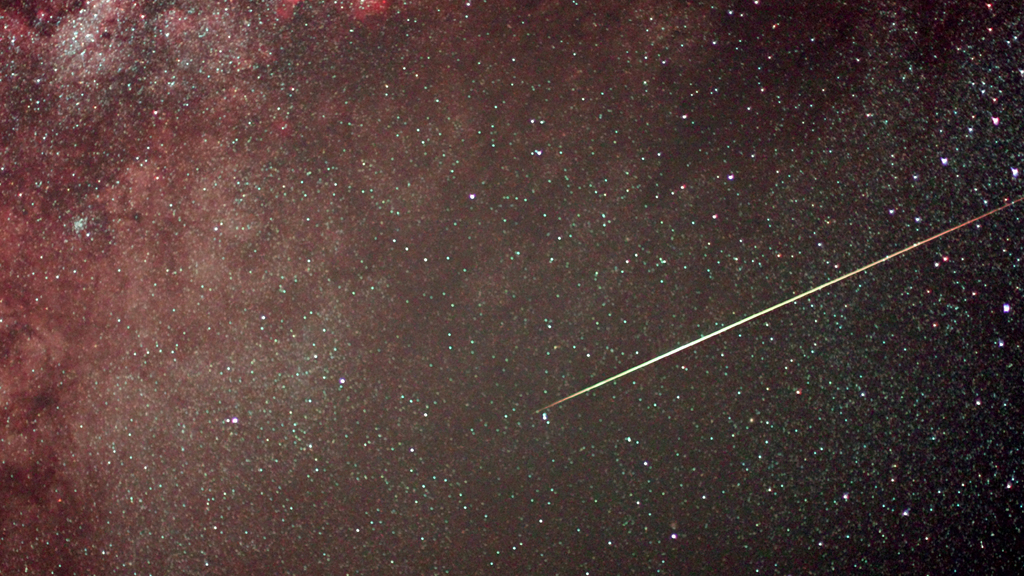Meteor shower lights up sky in natural fireworks display
 Liam Dutton
Weather Presenter
Liam Dutton
Weather Presenter
Skies above the UK are expected to shimmer tonight as the annual Perseids meteor shower takes place. Watch out for shooting stars at a rate of up to 60 an hour.

The meteor shower is active each year around mid-July to mid-August, with this year’s peak expected during Monday night into the early hours of Tuesday morning.
Stargazers will be able to see the natural display with their own eyes and without the need for a telescope.
The Royal Astronomical Society believes prospects for this year’s showing are particularly good. Perseids meteor showers are the result of material falling from the tail of Comet Swift-Tuttle, which last passed near the earth in 1992.
Professor Alan Fitzsimmons of Queen’s University Belfast said: “Comet Swift-Tuttle won’t be visiting our neck of the woods again until the year 2125, but every year we get this beautiful reminder as the earth ploughs through the debris it leaves in its orbit.”
He added: “Every meteor is a speck of comet dust vaporising as it enters our atmosphere at 36 miles per second. What a glorious way to go.”
What are meteors?
Meteors, often referred to as shooting stars, are the result of small particles entering the earth’s atmosphere at high speed. As they pass through the atmosphere, the air around them is heated, causing the characteristic streak of light seen from the ground.
They generally appear as fleeting flashes lasting less than a second, but the brightest ones leave behind trails of vaporised gases and glowing air molecules that may take a few seconds to fade.
There’ll also be a bonus for those looking up at the sky tonight, with two bright passes of the International Space Station (ISS) on Monday evening at 9.24pm and 11.04pm.
To spot the ISS, it is best to look west in the sky for a fast-moving bright light. It’ll zoom overhead towards the east, travelling at around 17,000mph.
Weather conditions are expected to be favourable for those hoping to catch a glimpse of tonight’s display, with clear skies expected across much of the UK.
However, cloud will increase across western Scotland and Northern Ireland by around midnight, so the best chance of spotting anything in these areas will be earlier than elsewhere.




